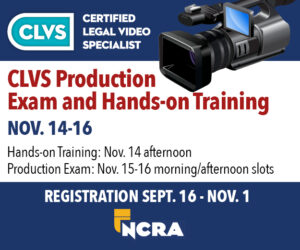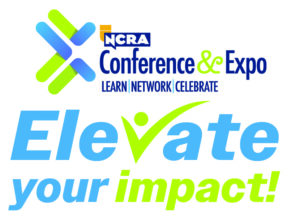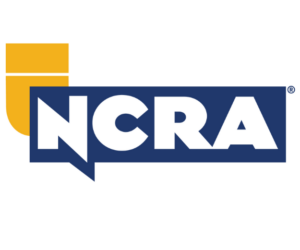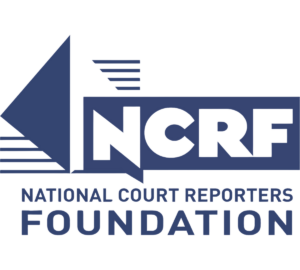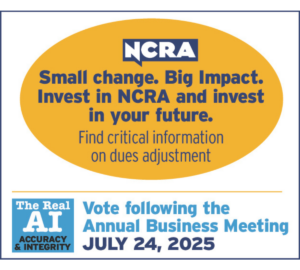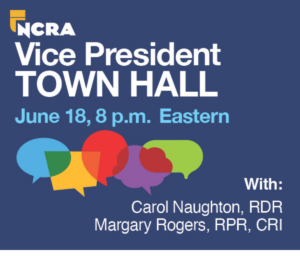
As a follow-up to NCRA’s first Celebrate Certification Month held in May, the article below written by Marybeth Everhart, RPR, CRI, CPE, national marketing manager for Realtime Coach, is meant as a reminder of the importance of earning and maintaining certifications.
Everhart is also on the schedule to present at NCRA’s 2018 Convention & Expo being held Aug. 2-5 in New Orleans, La. Her sessions will include: “Certification: Everything You Wanted to Know and More”; “Online Testing Skills”; and a special vendor showcase that will focus on the latest developments with Realtime Coach.
By Marybeth Everhart
According to the Cambridge Dictionary, certification is “proof or a document proving that someone is qualified for a particular job,” and those credentials are typically on display after the professional’s name. When you see “MD,” “RN,” or “CPA,” you know that those folks have not only completed a higher level of education but have also studied for and passed a rigorous exam. Professional credentials, or those cryptic initials behind someone’s name, identify that individual as someone dedicated to his or her chosen profession and prepared to uphold a certain set of standards. It signals to the world that this person has achieved something of note or importance. Most people certified in their profession will say that attaining that certification was the single most important step they took in career development.
These statements apply to all professions where certifications are attainable, court reporting included. If you’ve thought about that next NCRA certification but haven’t made the move yet, here are 10 reasons why you should:
- Certification demonstrates commitment to your profession. Receiving a certification shows your peers, supervisors, and the general public how committed you are to your reporting career, along with how well you perform to set standards. Certification sets you apart as a leader in your field.
- Certification enhances the overall image of the profession. NCRA certification programs seek to grow, promote, and develop certified professionals who can stand “out in front” as examples of excellence in the industry. Think of those you admire in this field and make note of the credentials they display, with pride. It’s unlikely that any of them lack a string of letters after their names.
- Certifications are portable. Those credentials can travel with you anywhere and can open doors to employment opportunities you may not have even considered yet. An RPR, for instance, is preferred for many officialships and signals to freelance firms that you can be trusted with their clients and challenging jobs. Currently, 22 states either accept or use the RPR in place of their state certification or exam.
- Certification builds self-esteem. NCRA certifications create a performance standard for the profession. You’ll see yourself as a certified professional who has some control over his or her own professional destiny and find a deep sense of personal satisfaction and accomplishment.
- Certification establishes professional credentials. Since it recognizes your individual accomplishments, certification stands above your résumé, serving as an impartial, third-party endorsement of your knowledge and expertise. When the public looks for individuals qualified to perform certain services, they seek individuals – like you – who have achieved certification. You can bet that firm owners and court personnel will favor those with credentials over those without.
- Certification improves career opportunities and advancement. Certification gives you the “edge” when being considered for a promotion or other career opportunities. Certification clearly identifies you as a person who can adapt to changes in work, technology, business practices, and innovation.
- Certification helps you market your services. Since certification is a voluntary professional commitment to our industry, it’s a clear indicator of your willingness to invest in your own professional development. The process of maintaining your certification exposes you to the constantly changing environment this profession faces and helps provide the tools needed to anticipate and respond to those changes. Being certified in today’s reporting environment is as important as it’s ever been.
- Certification provides for greater earnings potential. As a certified professional, you can expect many benefits, but in today’s downsized, rightsized, topsy-turvy working world, salary increases speak for themselves. Official reporters often receive a pay raise by attaining their realtime certification, and certified freelancers typically are given the better, higher paying jobs.
- Certification improves skills and knowledge. Achieving certification highlights your individual competence by confirming proficiency, knowledge, and career commitment. The Written Knowledge Tests require research and study to familiarize yourself with current reporting technology, as well as reporting and professional practices. The Registered Professional Reporter (RPR) demonstrates your proficiency at entry-level reporting skill and knowledge, while the Registered Merit Reporter (RMR) establishes not only your continued commitment to the profession, but also your interest in reaching and sustaining an exceptional level of skill and knowledge. The Certified Realtime Reporter (CRR) and Certified Realtime Captioner (CRC) authenticate your realtime skills to yourself and those seeking your services and expertise.
- Certification offers greater professional recognition from peers. Hear that applause? It’s all for you! As a certified professional, you can expect increased recognition from your peers for taking that extra step in your professional development. Let’s face it, we all like to add those ribbons to our name badges at convention — the longer the list, the better!



